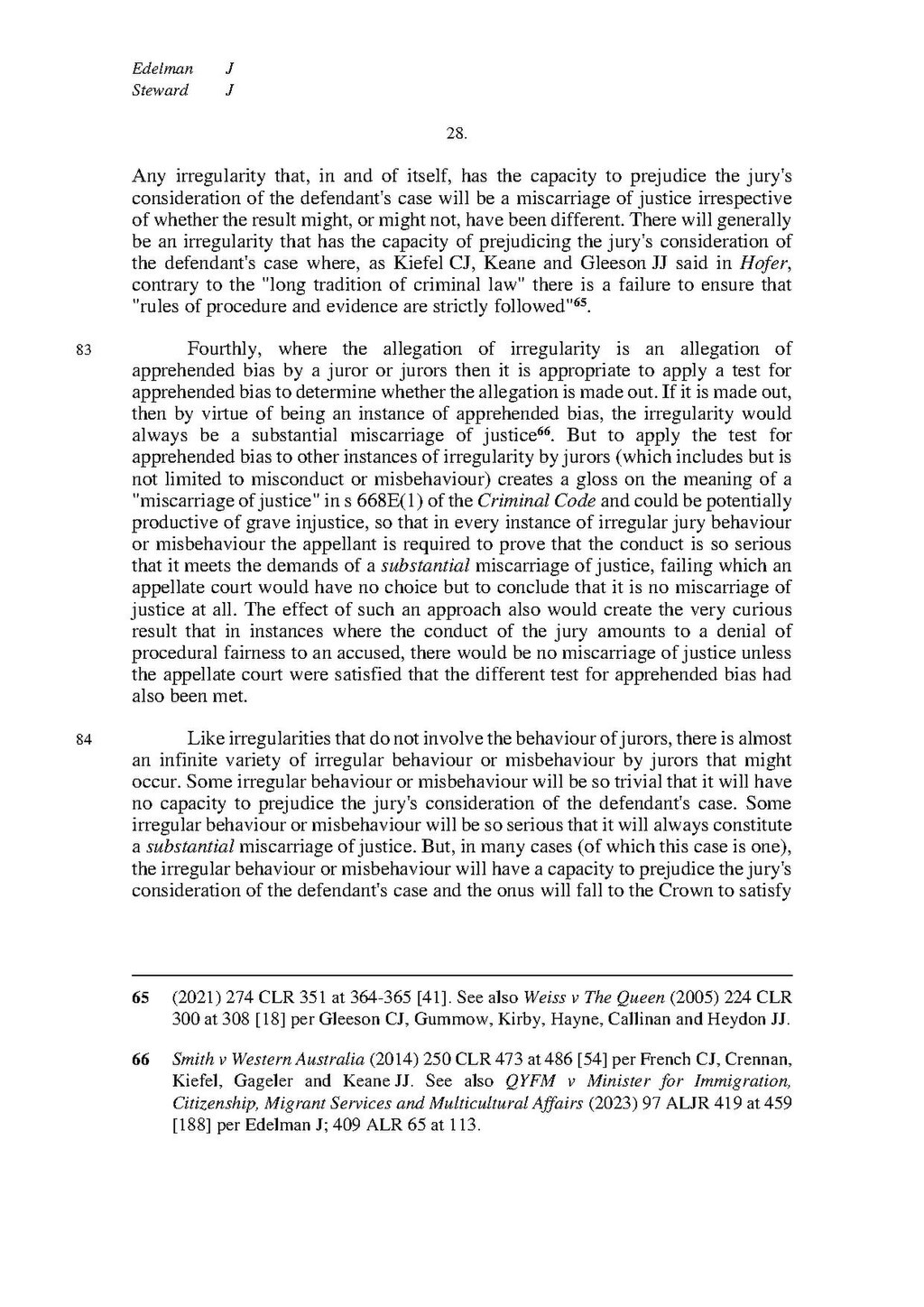Edelman J
Steward J
28.
Any irregularity that, in and of itself, has the capacity to prejudice the jury's consideration of the defendant's case will be a miscarriage of justice irrespective of whether the result might, or might not, have been different. There will generally be an irregularity that has the capacity of prejudicing the jury's consideration of the defendant's case where, as Kiefel CJ, Keane and Gleeson JJ said in Hofer, contrary to the "long tradition of criminal law" there is a failure to ensure that "rules of procedure and evidence are strictly followed"[1].
Fourthly, where the allegation of irregularity is an allegation of apprehended bias by a juror or jurors then it is appropriate to apply a test for apprehended bias to determine whether the allegation is made out. If it is made out, then by virtue of being an instance of apprehended bias, the irregularity would always be a substantial miscarriage of justice[2]. But to apply the test for apprehended bias to other instances of irregularity by jurors (which includes but is not limited to misconduct or misbehaviour) creates a gloss on the meaning of a "miscarriage of justice" in s 668E(1) of the Criminal Code and could be potentially productive of grave injustice, so that in every instance of irregular jury behaviour or misbehaviour the appellant is required to prove that the conduct is so serious that it meets the demands of a substantial miscarriage of justice, failing which an appellate court would have no choice but to conclude that it is no miscarriage of justice at all. The effect of such an approach also would create the very curious result that in instances where the conduct of the jury amounts to a denial of procedural fairness to an accused, there would be no miscarriage of justice unless the appellate court were satisfied that the different test for apprehended bias had also been met.
Like irregularities that do not involve the behaviour of jurors, there is almost an infinite variety of irregular behaviour or misbehaviour by jurors that might occur. Some irregular behaviour or misbehaviour will be so trivial that it will have no capacity to prejudice the jury's consideration of the defendant's case. Some irregular behaviour or misbehaviour will be so serious that it will always constitute a substantial miscarriage of justice. But, in many cases (of which this case is one), the irregular behaviour or misbehaviour will have a capacity to prejudice the jury's consideration of the defendant's case and the onus will fall to the Crown to satisfy
- ↑ (2021) 274 CLR 351 at 364-365 [41]. See also Weiss v The Queen (2005) 224 CLR 300 at 308 [18] per Gleeson CJ, Gummow, Kirby, Hayne, Callinan and Heydon JJ.
- ↑ Smith v Western Australia (2014) 250 CLR 473 at 486 [54] per French CJ, Crennan, Kiefel, Gageler and Keane JJ. See also QYFM v Minister for Immigration, Citizenship, Migrant Services and Multicultural Affairs (2023) 97 ALJR 419 at 459 [188] per Edelman J; 409 ALR 65 at 113.
